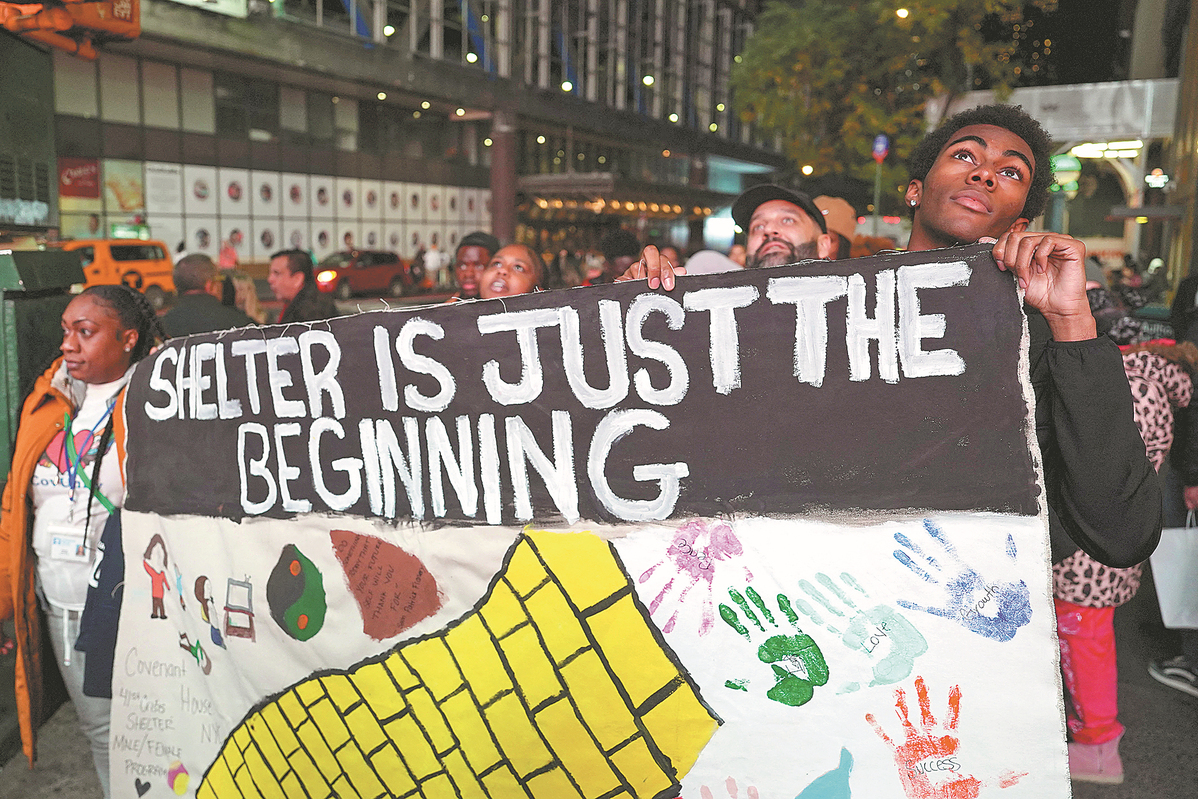US people living in cars find solace in safe parking

Editor's note: As the number of people living in motor vehicles changes the nature of homelessness in the United States, China Daily looks at their struggles, hopes and resilience.

Rising housing costs, inflation, limited shelter availability are driving a new and complex form of homelessness
Hiding in plain sight amid the hustle and bustle of everyday life are a growing number of US people who temporarily and sometimes permanently live in their cars, vans and recreational vehicles in large cities and small towns across the country.
The mobile homeless, as they are dubbed, live in cramped conditions, often have breakfast in the front seat of their vehicle, wash and do their hair in public toilets, put on their clothes, paint on a smile and sometimes go to work.
It is estimated that more than 500,000 people in the United States were homeless on any single night last year and had nowhere to live. Of those, 40 percent lived on the street or in their cars, said the Annual Homeless Assessment Report published by the US Department of Housing and Urban Development.
Many have not told their family, friends or co-workers of their plight, said case workers who deal with them daily. They often go quietly about their day, despite having no apartment or house to call home.
In a move aimed at helping this group, "safe parking lots" have sprung up in many places, including Duluth, Minnesota; several counties in California; Green Bay, Wisconsin; King County, Washington; and Denver, Colorado. They allow people to leave their car in a locked, monitored parking area so they can stay in it overnight. They must leave at 7 am the next day.
One woman aged 59 who did not want to be identified said she ended up in the Colorado Safe Parking Initiative after a divorce depleted her savings and she had a long stay in a hospital.
Unable to keep up with her rent, she lost the room she lived in after the owner sold the house. She scrambled to find another place but could not, she said.
So she put her belongings into storage and climbed into the one possession she had left, her car. However, there was more bad news: she had breast cancer.


















